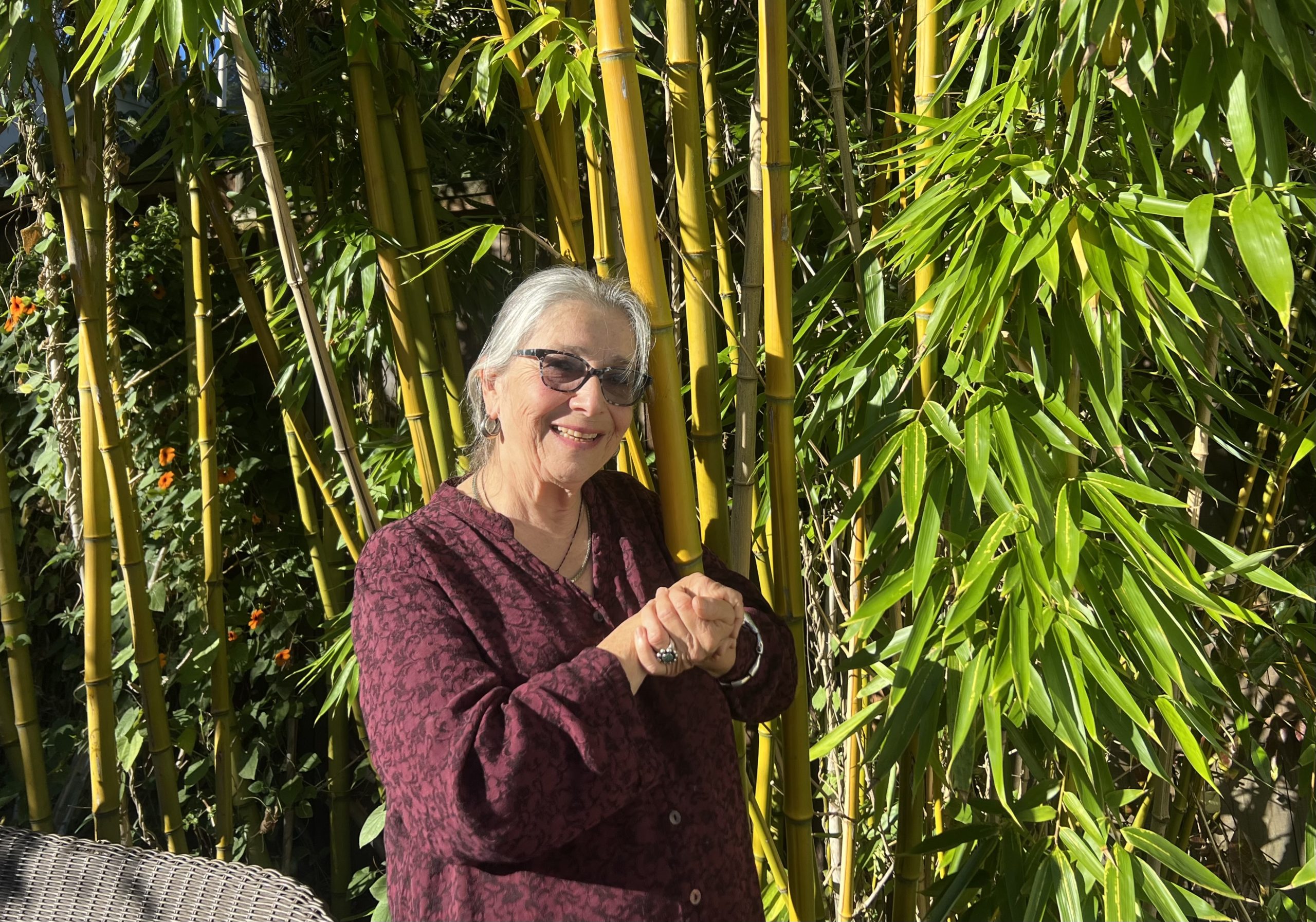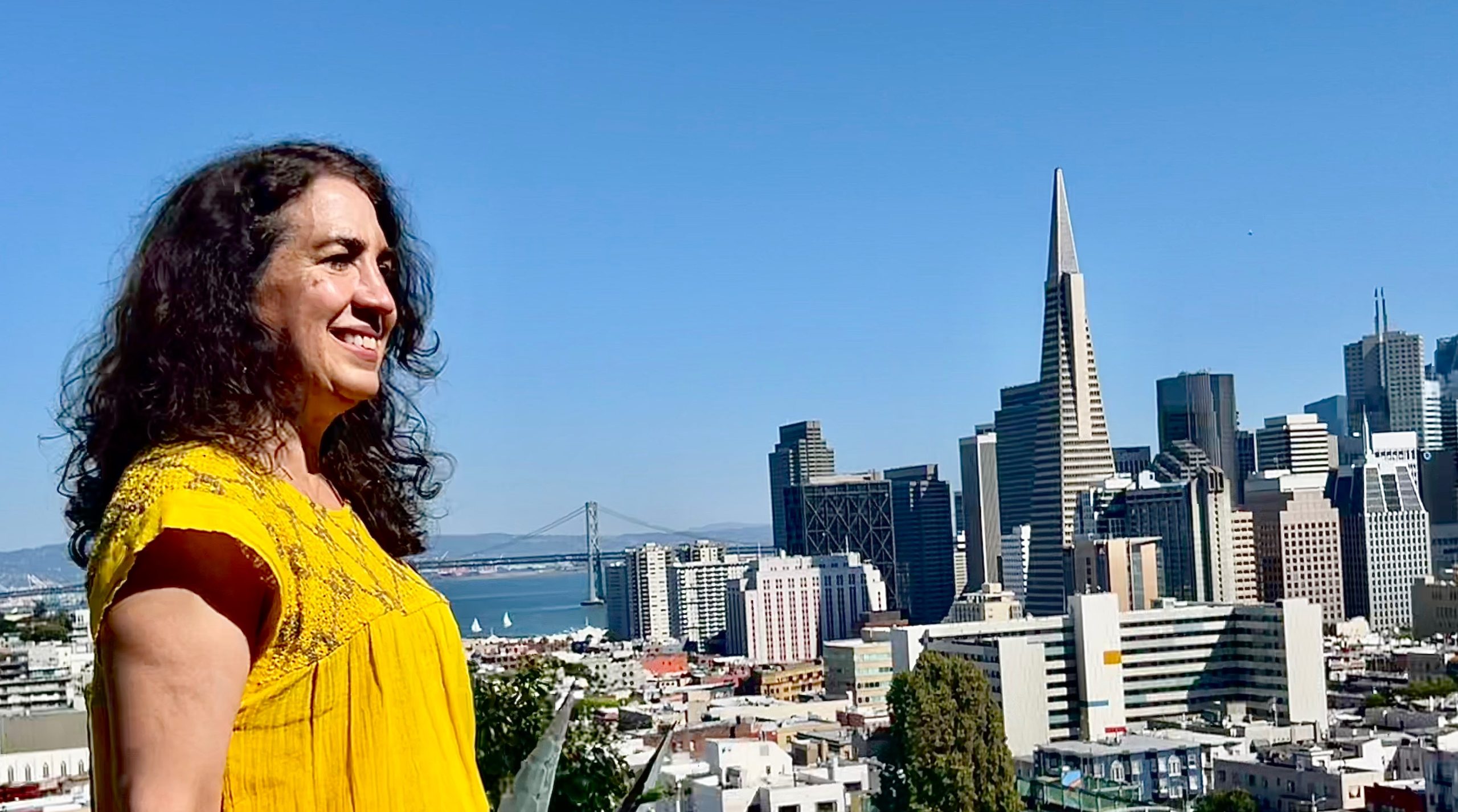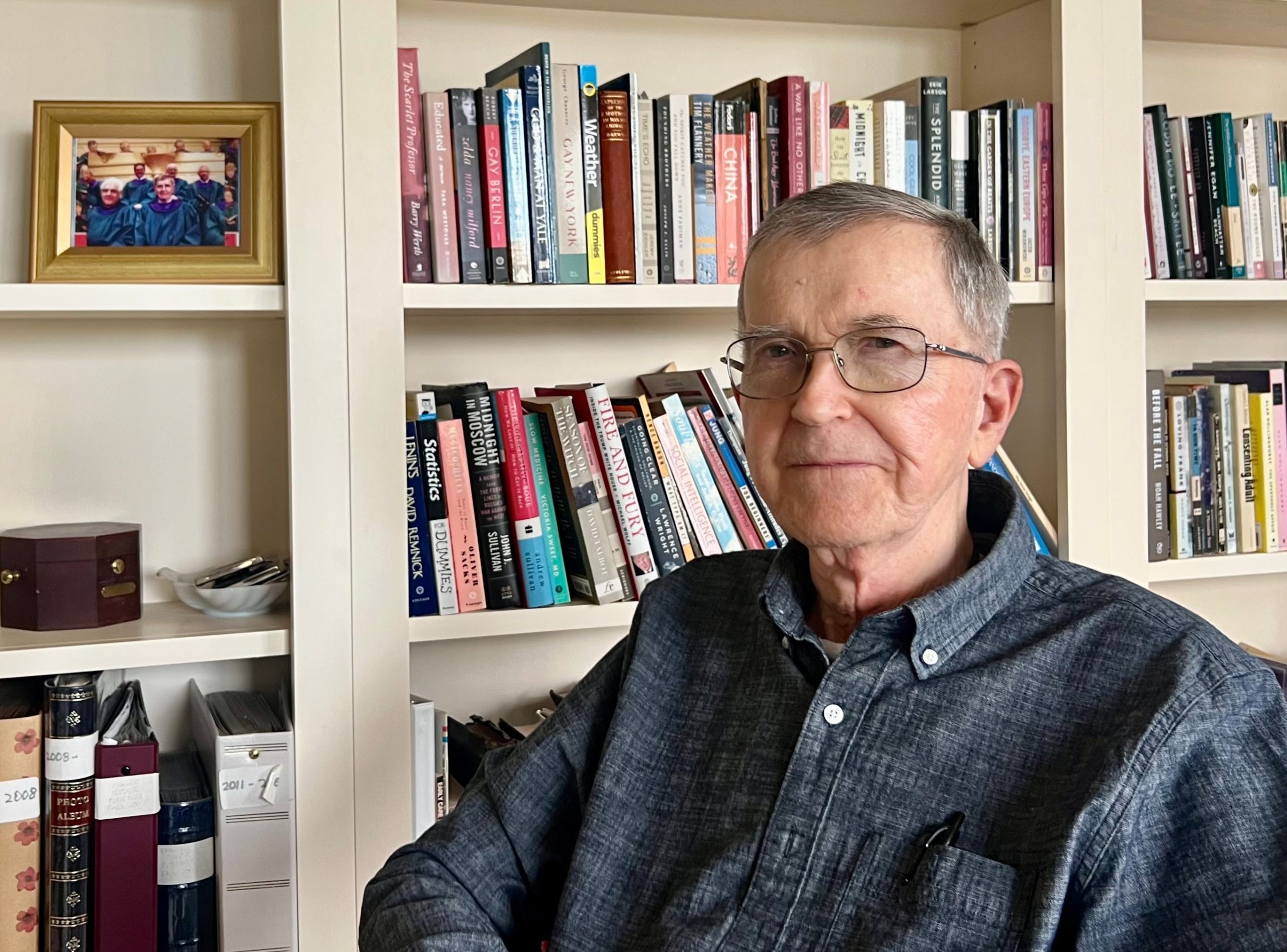Through one-man performances, son of Holocaust survivor shares history with high school students
It’s a shocking and head-spinning image: A Jew in a German officer’s uniform is being ministered to by a Jewish concentration camp inmate. The officer is a mischlinge, a German with Jewish blood who was allowed to serve in the German military during parts of World War II.
That image is at the heart of a compelling, one-person play that Roger Grunwald, whose mother and aunt were Holocaust survivors, has performed more than 200 times at high schools across the country over the last decade.
“The Mitzvah Project” is a 22-minute drama followed by a talk and then a question-and-answer session led by Grunwald. The play is painful to watch. It includes grisly, projected images of the Holocaust and a heart-rending storyline acted out by three characters – a mischlinge, a camp inmate, and a Groucho Marx-like narrator – all played by Grunwald.
“Mitzvah,” in Yiddish, is a good deed; the nature of that deed is revealed near the end of the play. You can view the play and discussion here.)
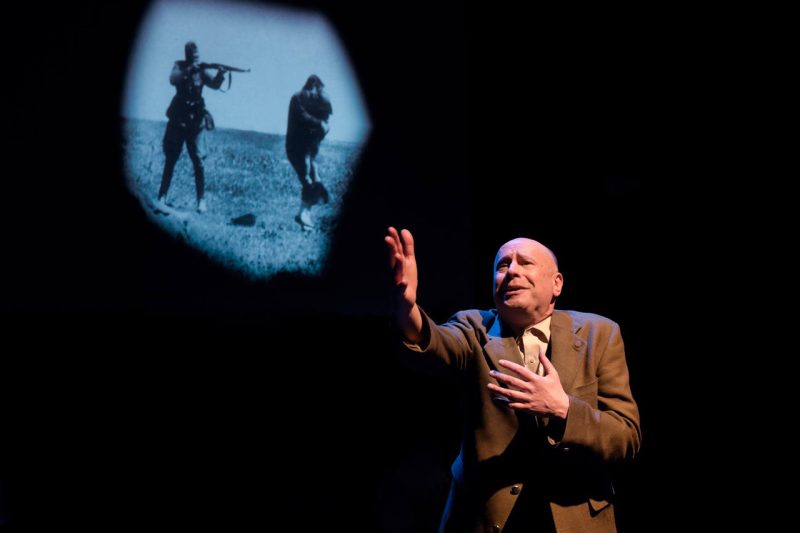
The project has become Grunwald’s life’s work, and it’s deeply personal. With the Holocaust now 80 years in the past, there are fewer and fewer survivors who can relate its horrors. “At a time when anti-Semitism is on the rise, there are critical lessons the Holocaust can teach us about hate and prejudice of all kinds,” he said.
At their root, said Grunwald, an avid reader of history, ideologies like anti-Semitism and white supremacy are about “othering,” seeing groups of people as other than us, even other than human.
Living with Parkinson’s
Now 74, Grunwald’s life has taken an unexpected turn; two years ago, he was diagnosed with Parkinson’s Disease. He’s had to stop acting since the tremors caused by the disease are distracting. “Of course, there are moments when the performing spirit still stirs in me, and I feel the urge to get up out of my chair and onto the stage. Letting go of that part of my life hasn’t been easy,” he said.
But he remains active with the project, writing, speaking, and working with actors who have taken his place on the stage. Like him, those actors all have a personal connection to the Holocaust.
Grunwald grew up knowing that his mother, Lotte, had survived Auschwitz, and even though she often spoke at schools and temples about her experiences, “it somehow never sank in when I was young. Maybe she was protecting me.” But his parents taught him to engage with the world and to be socially conscious. He thought more about the Holocaust as he got older.

He became an actor, and as his mother aged, she asked him to find a way to use his theatrical skills to carry on her work. Grunwald agreed but didn’t know how to honor his mother’s request. “I had a lot of ideas, but no plan.”
Then his aunt, Anni Bodenheimer, who survived the Bergen-Belsen concentration camp, gave him “Hitler’s Jewish Soldiers: The Untold Story of Nazi Racial Laws and Men of Jewish Descent in the German Military,” by Bryan Mark Rigg. Those soldiers were the mischlinge, and Rigg estimated that there were as many as 150,000.
“It was shocking,” Grunwald said, but inspirational. “I knew there was a story to be told, and I wanted to pay tribute to my aunt and her sisters.” He points out that many Jews had become deeply assimilated into German society; many even fought on Germany’s side during World War I.
Rugg’s book and Grunwald’s extensive research became the basis for “The Mitzvah Project” and for “I Died in Auschwitz,” a longer version of the play.
Grunwald was born in San Francisco and lives with his long-time partner in an apartment near Kaiser Hospital. His parents grew up in Germany and, like many Jews, fled the country to escape the Nazis.
Escaping the Holocaust
His father, Kurt, and paternal grandmother moved to the Philippines, one of the few countries willing to accept Jewish refugees. “No one else wanted them, and that included the United States,” said Grunwald. When the Japanese invaded early in the war, they left Manila and hid in Mindanao, an island some 800 miles from the capital. His grandmother did not survive the war.
But after the U.S. recaptured the Philippines, Kurt became friendly with an American GI, who was also a German Jew. The GI sponsored Kurt, and he was allowed to immigrate to New York City.
Grunwald’s mother and her sisters fled to Amsterdam and hid. But like the family of Anne Frank, their Dutch hiding place was eventually discovered, and they were shipped to Nazi concentration camps. Lotte, Grunwald’s mother, survived, as did his Aunt Anni. But the rest of the family perished.

Kurt and Lotte met and married in New York, while Anni settled in Los Angeles. They lived in Daly City’s Westlake District for a while and then moved to San Francisco. Kurt became a lumber broker, a business he likely learned in the Philippines, Roger said. After her husband’s death, Lotte became a physical therapist.
Grunwald attended San Francisco’s Lick-Wilmerding High School, then tuition-free, and went on to study at the University of California, Berkley, and in Munich, Germany.
A talented mimic
He trained at the London Academy of Music and Dramatic Art and began to work as an actor. While taking acting classes, he met Annie McGreevey, a theater professional who co-wrote The Mitzvah and became his director.
Both plays are performed on stages that are nearly bare, save for screens where images are projected. Grunwald changes only his shirt and jacket as he morphs from character to character.
He’s fluent in German and has a talent for mimicking accents. In one minute, he’s speaking in the clipped tones of a Nazi officer, the next he’s mimicking the heavy Yiddish accent of a refugee. When he becomes the narrator, he sounds just like Groucho Marx and punctuates his cynical wisecracks by gesticulating with a cigar — the way Groucho did.
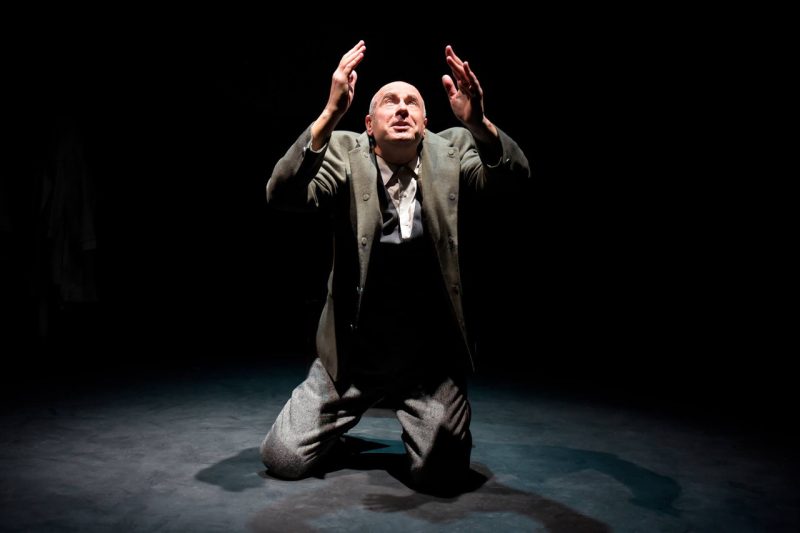
His facility with language and accents was a help in his early career. He landed voice-over roles in which he portrayed Nazi leaders, including Hitler, Goring, Goebbels, and Rommel. “I got the job (portraying Rommel) through a top talent agent. It was the work and getting more work that consumed me at the time,” he said.
“The Mitzvah” begins with Christoph Rosenberg, a half-Jewish lieutenant in the German Army, standing at attention during a mass tribute to Adolf Hitler in 1939. He recounts pulling out his service revolver and killing Hitler. That’s a fantasy, of course, and it’s quickly debunked by the narrator. Then the audience meets Schmuel Berkowicz, a Polish Jew from Bialystok, Poland, begging for his life in Auschwitz.
Berkowicz lives to witness unspeakable crimes, some of which are depicted by contemporary photos projected on the stage.
There are additional characters in the longer play, but with the exception of an actual Nazi general, none represent real people or members of Grunwald’s family. They are all composites.
Educating a new generation
Although there is some humor in “The Mitzvah,” watching is sobering and upsetting. Is it too heavy for its high school audience? “What I have experienced, in high schools and colleges across the country, is the opposite,” Grunewald said. “Young people are open, curious, and deeply engaged when given the opportunity to learn about the Holocaust and its lessons.”
In 2018, Grunewald was in Amsterdam, appearing in “Anne and Emmett,” a play about a fictional conversation between Anne Frank and Emmett Till, a black teenager murdered by racists in the South. Before one evening’s performance, he visited the apartment where his mother and other relatives hid from the Nazis.
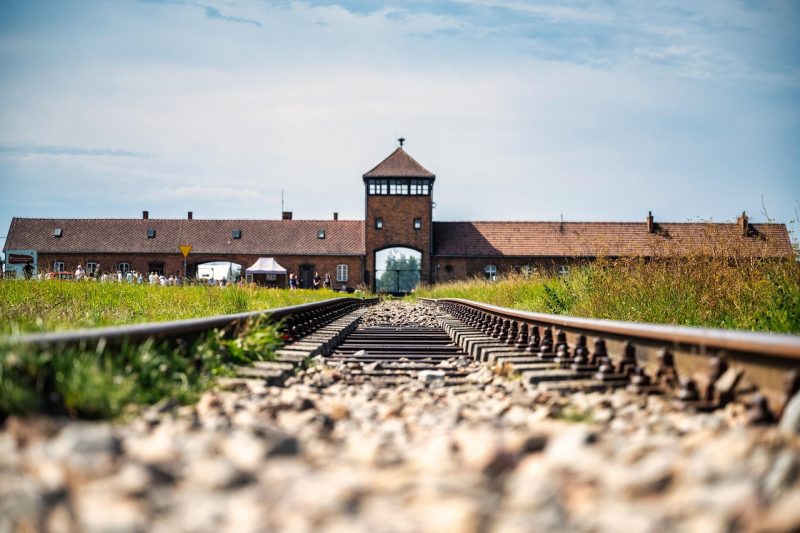
“My performance that night was different. It was different because that night I was not just Roger Grunwald playing a part. I was Otto Frank. I was my mother. I was my aunt. I was my mother’s younger sister and my mother’s father,” he wrote in “The Jewish News of Northern California.”
The Covid pandemic forced the project to move its presentations to Zoom, but live performances are now in the works. Although there’s no definite schedule yet, Grunwald anticipates performances in California, Colorado, and Utah during the current school term. The Marin Shakespeare Company will perform “I Died in Auschwitz” next year.
Despite his Parkinson’s, Grunewald moves and speaks well and looks fit. He spends a good deal of his time on exercise, diet, and physical therapy aimed at minimizing his symptoms.
He’s part of a clinical trial exploring Parkinson’s. However, the trial is not likely to produce a breakthrough in time to cure or help him substantially, he said. But participating is another way that he engages with the world. “You can’t feel positive about yourself, unless you’re making a positive contribution to the world.”
Despite the fraught state of the world, Grunwald remains hopeful about the future. “Like Anne Frank, I believe in the decency of humanity. The fight must continue.”


